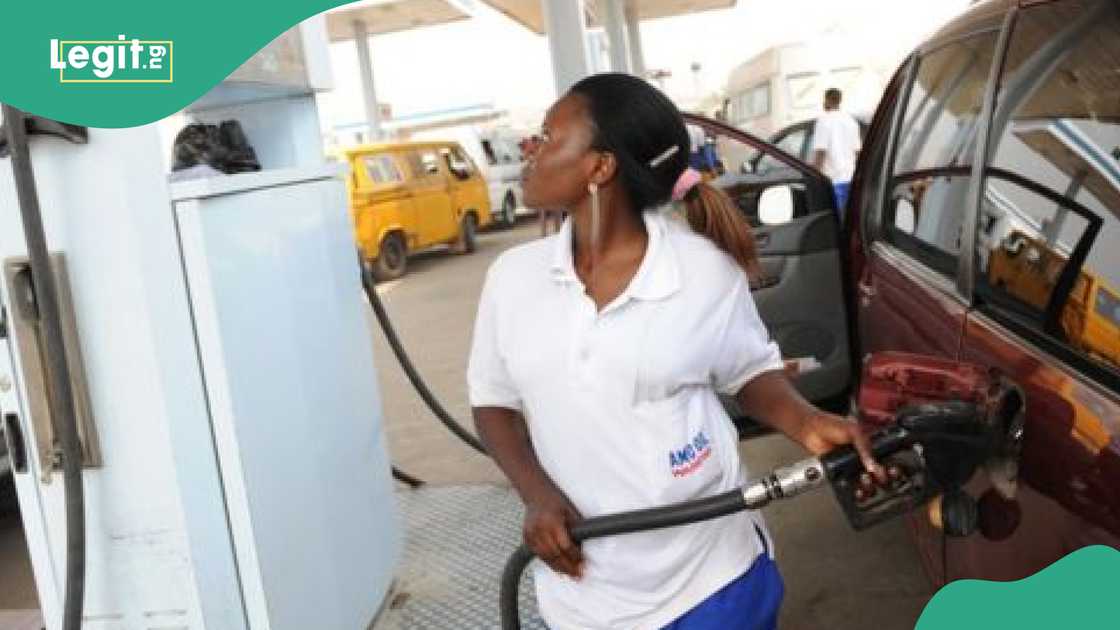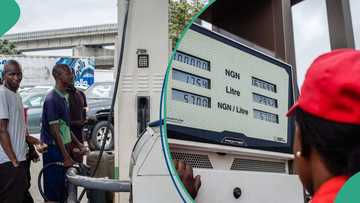Depot Fuel Prices Fall Across Nigeria as Oil Prices Crash to $68 as OPEC+ Reverses Cuts
- The crash in crude oil prices has led to a drop in depot costs across Nigeria as Nigerians await a reflection at the pumps
- Data from reliable sources show that oil markets fell on Monday, August 5, 2025, as OPEC indicated interest in increasing production
- Following the international downturn, depot-level fuel prices in Nigeria saw marked reductions
Don't miss out! Join Legit.ng's Sports News channel on WhatsApp now!
Legit.ng’s Pascal Oparada has reported on tech, energy, stocks, investment and the economy for over a decade.
Oil markets tumbled on Monday as OPEC+ signalled an aggressive production ramp-up, reversing 2.2 million barrels per day of voluntary cuts from September.
Brent crude fell to $68.02 per barrel, and U.S. benchmark WTI dropped to $65.58—the lowest levels in over a week.

Source: UGC
Nigeria’s fuel depots reflect the Global trend
The decision was driven by expectations of strong summer demand and depleted global inventories. OPEC+ confirmed it would raise production by 547,000 b/d next month, sparking a bearish outlook across global energy markets.
According to a report by Petroleumpriceng, following the international downturn, depot-level fuel prices in Nigeria saw marked reductions, tracking the global slump. Data from Petroleumprice.ng shows that Lagos, Warri, and Port Harcourt recorded significant price cuts in the first week of August.
Lagos:
Dangote’s diesel (AGO) dropped from ₦1,043 to ₦1,015. Aiteo adjusted petrol (PMS) to ₦862 and diesel to ₦1,017, both down from Friday’s ₦865 and ₦1,035, respectively.
Warri:
Matrix slashed petrol to ₦865 (from ₦890) and diesel to ₦1,090 (from ₦1,150).
Port Harcourt:
PMS remained steady at ₦890 across key depots, while Masters reduced AGO to ₦1,088 from ₦1,110.
These local price changes coincide with Nigeria’s improving crude output. The Nigerian Upstream Petroleum Regulatory Commission (NUPRC) confirmed July production exceeded 1.8 million b/d—the highest since April 2020—boosted by enhanced anti-theft operations and infrastructure security.
U.S. oil majors surge as Europe, Aramco struggle
In the global oil landscape, American energy giants ExxonMobil and Chevron posted record-breaking Q2 production—4.63 million and 3.4 million barrels of oil equivalent per day, respectively. Meanwhile, European rivals faltered: Shell’s output declined by 4.2%, and BP fell 3.3%. TotalEnergies bucked the trend with modest gains.
Saudi Aramco also faced setbacks, reporting a 22% plunge in Q2 profits to $22.7 billion. Its average realised crude price fell to $66.7/bbl, and its share price has declined 14% in 2025 amid fiscal pressure to maintain Saudi Arabia’s high breakeven price of $92.3/bbl.
Major global energy shifts reshape supply chains
Globally, new energy alliances and geopolitical developments are reshaping oil trade routes and exploration. Highlights include:
- Brazil: BP announces its biggest discovery in 25 years in the Santos Basin.
- Venezuela: Chevron gears up for renewed crude exports after a U.S. Treasury waiver.
- India: Reliance teams up with BP and ONGC for offshore drilling.
- Libya: ExxonMobil re-enters after a 12-year hiatus.
Geopolitical tensions and extreme weather are also fuelling disruption, from Ukraine's strikes on Russian refineries to Panama’s clampdown on old oil tankers.

Source: UGC
What does it mean for Nigeria?
As global oil prices retreat, Nigeria is benefiting from easing fuel costs and rising crude production.

Read also
Landing cost soars: Petrol prices to surpass N1,000 as Dangote Refinery and crude oil costs spike
If these trends continue, they could reduce pressure on domestic energy prices and help stabilise inflation.
However, risks remain as the global oil market continues to shift under geopolitical and economic pressure.
Delta state leads oil production in Nigeria
Legit.ng earlier reported that Delta state has cemented its place as Nigeria’s most productive oil state, according to fresh data from the Nigerian Upstream Petroleum Regulatory Commission (NUPRC).
Covering the period from November 2023 to September 2024, the report shows that Delta alone produced a staggering 99.9 million barrels of crude oil and condensate, the highest output by any state during the period.
This volume represents more than one-third of Nigeria’s total attributed production of 295.34 million barrels.
Source: Legit.ng




